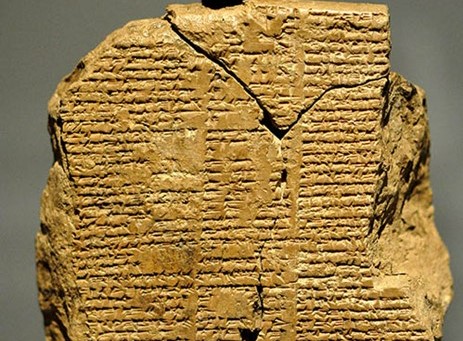

Every day, there seems to be some new ‘discovery’ or hack that will unlock our happiness. It’s hard to know what will work and what will not. It’s for this reason, I like to remind myself of enduring wise words from people that lived before us. After all, while today’s material world is very different from the past, human nature is the same: we still seek power, money, and love, and we still get angry, scared, and upset by the actions of others.
I’m not the first to think like this, Rumi, the 13th century Sufi poet said ‘If you’re lost, look for footprints of those that went before you’ and Lao-Tze, the Chinese Taoist philosopher from 2,500 years ago wrote ‘By sticking to the underlying principles (Tao) of the past, you will master the life of today’. So, in a two-part Refresher, I’ve selected some one-liners from wise people that lived before us. Here’s part one:
Ask the person who has got rich, whether they have guaranteed how long they will live. (Shekel Hakodesh, Hebrew text of aphorisms, 12th century)
You won’t become honourable and upright until you spend from what you love. And whatever you spend, will be known eternally. (Quran 3:92)
Offer to the world that which is very dear to you and the results will be infinite. (Srimad Bhagavatam, Hindu sacred text, 8th century)
The more we have, the less we own. (Eckhart, German mystic, 13th/14th century)
Desires are only the lack of something. So those who have the greatest desires are in a worse condition than those who have none. (Eryxias or Dialogue supposedly written by Plato, 4th century BC)
To have few desires and to be satisfied with simple things is the sign of a superior man. (Gampopa, Tibetan buddhist teacher, 12th century)
In order to arrive at possessing everything, desire to possess nothing. (St John of the Cross, Spanish mystic, 16th century)
The worst man is the one who sees himself as the best. (‘Ali, cousin of Prophet Muhammad, 7th century)
Evil starts with pride and ends with humility. (William Law, British Christian priest, 18th century)
If you can’t be the sun, then be the humble planet. (Tibetan Precept)
Hide the good you do, and make known the good done to you. (Ali)
The world is so constructed that if you wish to enjoy its pleasures, you must also endure its pains. Whether you like it or not, you cannot have one without the other. (Swami Brahmananda, Hindu monk, 19th/20th century)
The fly runs towards the lamp thinking it’s a flower and gets burnt. Likewise, people run towards an apparently beautiful object thinking he can obtain real happiness and gets burnt up in the fire of desire. (Swami Sivananda, Hindu spiritual teacher, 20th century)
Know this; the object you crave for is perishable and transient in itself. How then can lasting peace be derived from it? (Swami Ramdas, Indian ascetic, 20th century)
The past has flown away. The coming month and year do not exist. Ours is only the present’s tiny moment. (Shabistari, Persian sufi poet, 14th century)
There is little difference between a long life and a short one. After all, it is just a moment in the infinity of time. (Chuang-tse, Chinese Taoist philosopher, 4th century BC)
We, humans, are poor things. We don’t know how long we’ll live for, and we don’t understand our sicknesses. The sting of a wasp will make us suffer, we smell of sweat and we die of a cough! (Ali)
Death is like an arrow that is already in flight, and your life lasts only until it reaches you. (Georg Hermes, German catholic theolgian, 19th century)
It is astonishing that anyone, and even while seeing others die, should forget death. (Ali)
Don’t judge others, otherwise, you’ll be judged. Also, the fault you see in others will end up being seen in you and the punishment you dole out will be doled out to you. (St Matthew VII 1-2)
Whoever listens to slander is a slanderer themselves. (Ali)
For someone who has found the best way of living to try to reform others instead of reforming themselves is a big mistake. (Gampopa)
As far as possible one should not interfere in the affairs of others. (Sri Ramana Maharshi, Indian sage, 20th century)
Put your heart, mind, intellect, and soul even to your smallest acts. This is the secret to success. (Swami Sivananda)
I want to do everything with purpose and intention, even my eating, my drinking, and my sleeping. (Al-Ghazali, Muslim theologian, 11th /12th century)
Those who see action in inaction and inaction in action are very wise. Although performing all kinds of actions, they become masters of all their actions. (Bhagavad-Gita IV:8, Hindu sacred text, 2nd century BC))
Not to commit faults counts for more than to do good. (Ali)
The truly brave person doesn’t give in to fear or anger, desire or agony. They are at all times a master of themselves. (Ohiye Sa, Native American/Sioux writer, 20th century)
Courage is the conquest of one’s own self. (Srimad Bhagavatam)
The happiness of solitude is not found in retreats. But it can even be found in the busiest cities. However, happiness is not in solitude or in busy centres, but rather it is in the self. (Sri Ramana Maharshi)
Look out for part two in my next Refresher.
Thanks,
Bilal
Spring sale - Prime Membership only £3 for 3 months! Get trade ideas and macro insights now
Your subscription has been successfully canceled.
Discount Applied - Your subscription has now updated with Coupon and from next payment Discount will be applied.
wonderful quotes TY!